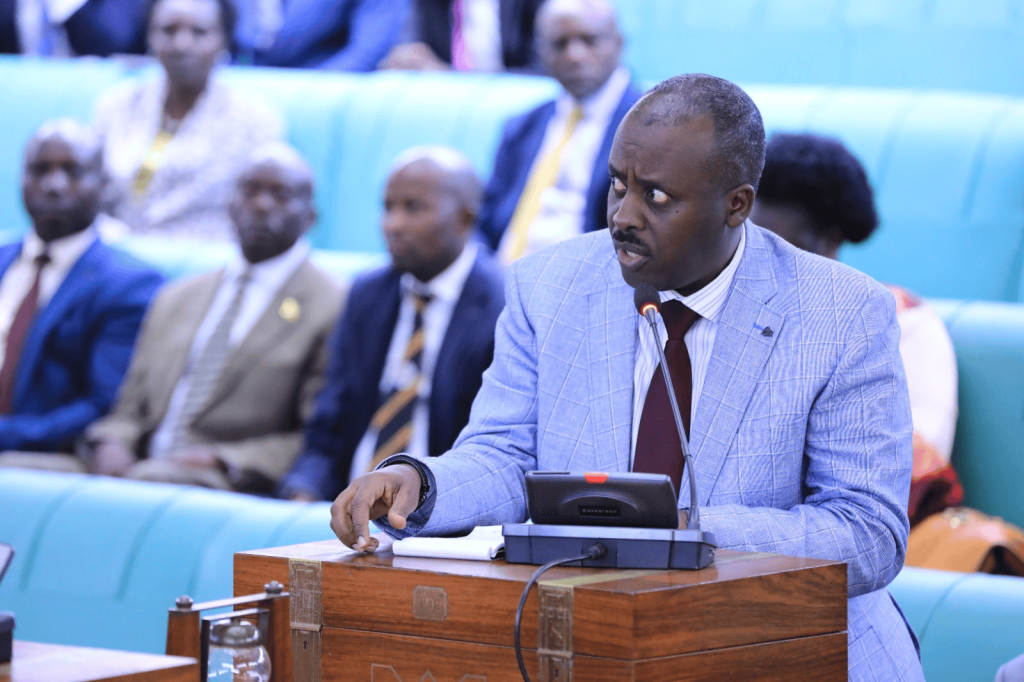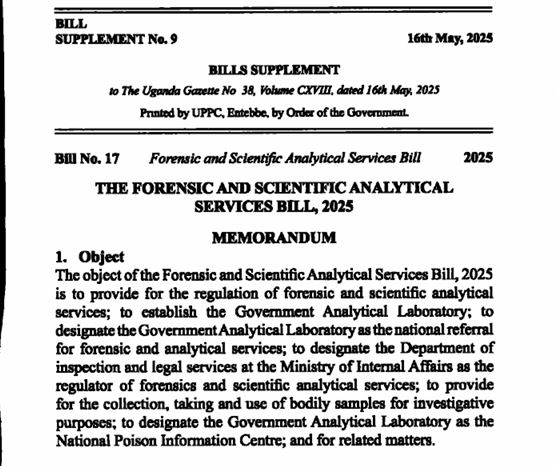Published on 25/09/2025
Minister of State for Internal Affairs, David Muhoozi, has urged Parliament not to reject the Forensic and Scientific Analytical Services Bill, 2025, despite resistance from government agencies protecting their jurisdictions.
Speaking at a harmonization meeting with Parliament’s Defense and Internal Affairs Committee on September 24, 2025, Muhoozi emphasized the bill’s critical role in enhancing Uganda’s fight against crime, even as stakeholders flagged provisions conflicting with existing laws. “


It’s been a long journey,” Muhoozi said, noting the bill’s history of being presented, withdrawn, revised, and resubmitted. “Some submissions show territorial inclinations, even within our own family. Are we making this law for the country or for individuals?” he asked, urging MPs to prioritize national interests over agency turf wars.
The appeal followed concerns raised by Wilson Kajwengye, Chairperson of the Defense and Internal Affairs Committee and MP for Nyabushozi County, who called for the bill’s withdrawal due to overlaps with existing legislation. “Parliament’s guidance is clear: we don’t sponsor bills, but if the sponsor concedes on the floor, it becomes a different piece of legislation,” Kajwengye said. “Our intention isn’t to override other laws unless explicitly amending them, which isn’t the case here.”

Kajwengye highlighted clause 30, which designates the Directorate of Government Analytical Laboratory (DGAL) as the National Poison Information Centre.
He argued this conflicts with World Health Organization (WHO) guidelines, which recommend situating poison centers near health facilities to handle emergencies, a role typically under the Ministry of Health’s Public Health Act and Food and Drugs Act. “WHO’s 2020 Guidelines for Poison Control require specialized advice on poisoning cases, supported by physicians trained in clinical toxicology,” he noted, questioning DGAL’s capacity for this mandate.
Theodore Ssekikubo, MP for Lwemiyaga County, echoed these concerns, warning that the bill’s fundamental flaws could lead to its rejection on the parliamentary floor. “The issues are so significant that the bill, in its current form, may not survive debate,” he said. “It’s polite for the minister to reconsider with his team to avoid an embarrassing rejection by his own committee.”
The committee also flagged clause 12, which requires individuals operating analytical laboratories to obtain a license from the Department of Inspection and Legal Services to provide forensic services. This provision overlaps with existing laws, including section 29 of Medical and Dental Practitioners Act, section 31 of the Allied Health Professionals Act, section 124 of the National Environmental Act, and section 10 of the Agricultural Chemicals Control Act, which already regulate forensic laboratories.
Additionally, clause 24, which proposes that DGAL establish a forensic and scientific database, was criticized for duplicating the Uganda Police Force’s Identification Bureau under section 2 of the Identification of Offenders Act, CAP 127. The bureau already manages fingerprints, palm prints, and other offender data. “This creates confusion and duplication,” Kajwengye said. “The database should be limited to exclusive records, like paternity test results, without encroaching on existing mandates.”
As Parliament prepares its report, the harmonization meeting underscores the tension between advancing forensic capabilities and ensuring legislative coherence. Muhoozi’s call to retain the bill highlights its potential to strengthen crime-fighting efforts, but resolving conflicts with existing laws remains critical to its passage.




